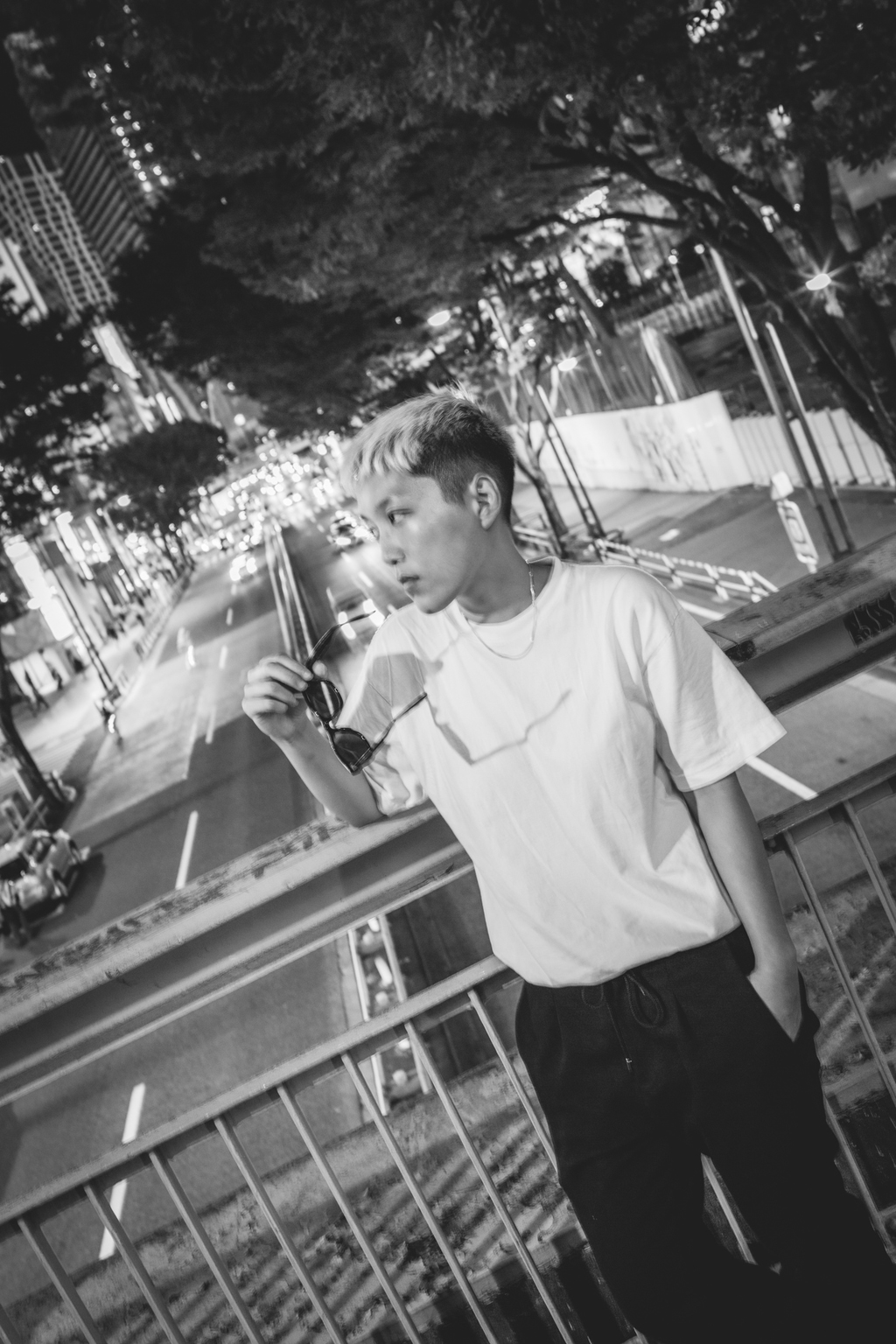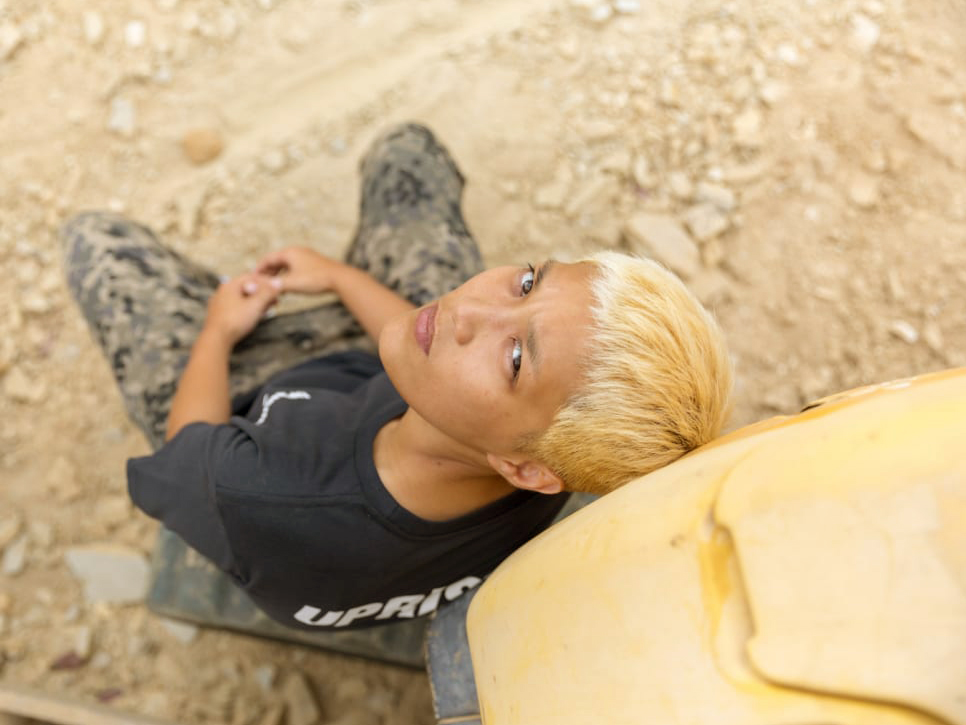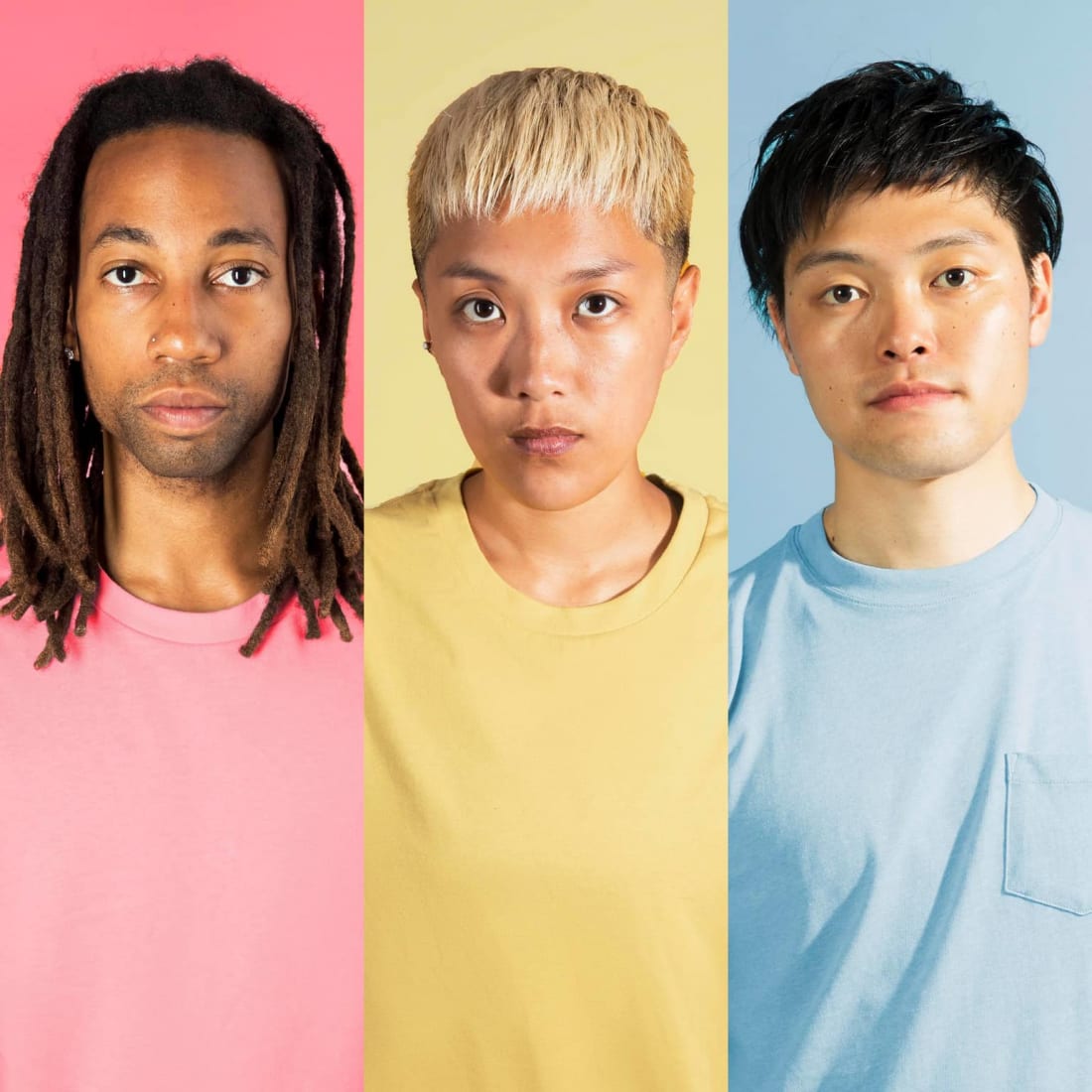With the opening lyrics, “Don’t think too much. Let it be. Let it go,” Japanese R&B songstress Amiide hopes to introduce her band CIRRRCLE and their new song “Fast Car” to the world, and change the way gay culture is accepted in Japan.
Amiide’s clear, cool, sing-song delivery grabs the ear like windchimes on a breezy summer day. While she admits her voice lacks the robust power of Beyonce or Aretha Franklin, Ide’s whispery crooning is aptly compared with other sirens of R&B like Janet Jackson or the late Aaliyah.
CIRRRCLE is far from a household name, but their songs are ticking numbers on Spotify, and the trio’s sleek videos, produced and directed by Ide, a film grad, are catching attention on Youtube.
“I just want to [do a] world tour with my team,” says Amiide. “I don’t mind van trip. I just want to do what I want to do. What I love.”
“I Was Hiding My Passion For My Entire Life”
Amiide pulls her bicycle in front of the Ebisu coffee shop promptly on time. Her cropped bleach-blonde hair, skater boi outfit and B-boy slang and vocal inflection bely the decidedly feminine ring to her singing voice.
She says she just drank a cup of coffee, and the self-professed coffee addict orders a green tea smoothie.
“I am gay, and I am open about it,” says Amiide, once she’s settled in. “It’s not hard for me, because I am like this, a not-give-a-fuck type of person.”
Amiide grew up in Kobe. Her mother is a professional opera singer and her father, a graphic designer, was an ardent proponent of jazz. Neither genre interested young Ami. Instead she was drawn to the R&B and dance-pop songs of Hikaru Utada, and soon her mother, who also taught Ami the basics of singing, introduced her to Mariah Carey and Whitney Houston.
While it was always Amiide’s dreams to be a singer, her mother discouraged her as she experienced first-person the difficulties of the profession. Instead, Amiide enrolled in Cal-State Fullerton in Orange County and earned her university degree in film and video production.
At age 25, a friend heard Ide sing and persuaded her to film a music video of the Bruno Mars cover “Just the Way You Are.”
“I was hiding my passion for my entire life,” says Amiide. “It was always my dream, but I just couldn’t do it. I didn’t have the guts to do it. I realized I just had to do it, because I don’t want to die regretting things I have never done.”
Coming of Age
It was also in Los Angeles where Ide discovered her sexuality. At age 20, Amiide had her first girlfriend.
“I kind of knew, but you can’t tell if you are not in a relationship. That was the time, okay, I think I’m gay,” says Amiide. “I am glad I went to L.A. If I was in Japan, I don’t think I would be able to do that.”
Critically acclaimed London-based pop singer Rina Sawayama, who was born in Japan, says there is a lack of representation in media for the LBGTQ community.
“The reason why I wasn’t so comfortable with my sexuality was because there was no one on TV or anywhere that I could point at and go, ‘Look Mum, this person is what I was talking about,” said Sawayama, who identifies as bisexual and pansexual, in a recent interview.
Amiide says in L.A. she was surrounded by lesbians who were open about their sexuality. Even in American media, openly gay celebrities like Ellen DeGeneres were thriving. In Japan, Amiide says gay celebrities stay in the closet, and those who have come out, disappear from the limelight.
Even when politician Mio Sugito called gay couples “unproductive,” Amiide says while American celebrities would have professed their outrage on social media, a peep wasn’t to be heard from Japan’s stars.
“In Japan, people are too afraid to talk about it, because they don’t want people to think that they are political,” says Amiide. “Being political as an artist or as a celebrity, it is hard. The audience just wants them to be an idol.”

Photo by Shinsuke Yasui
The New Normal
Amiide returned to Tokyo three years ago, mainly because her visa ran out, but also because her naïve perception was it would be easier to break into the Tokyo music scene as opposed to L.A., where everyone has six-pack abs and a song in their pocket.
In Tokyo, Amiide hit every audition she could find. Then 25, she had reached the age limit most producers would accept. She waited in studios with girls nearly a decade younger than her, and kept losing jobs to the pretty girls with “horrible” singing voices.
She decided to go it alone and formed her first hop hop duo Ayen, but she was still wearing makeup and dressing the part. She formed CIRRRCLE (the three Rs are inspired by the three Ms in the name of Yellow Magic Orchestra keyboardist Ryuchi Sakamoto’s record label Commmons) with American rapper Jyodan and multi-instrumentalist producer A.G.O. Their third EP, Fast Car, was independently released this summer.
Their sound was influenced by Kehlani and Super Duper Kyle. Personally, Amiide gleans inspiration from Syd Bennett, aka Syd tha Kid, the openly gay frontwoman for the Grammy-nominated soul and R&B group The Internet. Bennett said in an interview while there is pressure representing homosexuality in rap music, she doesn’t want to be known as a “gay artist” or a “lesbian singer,” but as somebody whose “music is fire.”
“When I saw Syd, she was not a typical pop icon. She looks really cool as who she is,” says Amiide, who met Bennett in Tokyo. “I just want to people to know that we are normal. I don’t want to make it special, that’s why I don’t really state anger or say people should treat lesbians like this in my lyrics. I just want to make regular love songs…. I want to be the new normal.”
Keep On Driving
Amiide says LGBTQ music tends to dwell on darker issues, and she prefers to write “happy” songs. While she has had her fair share of heartbreak, including an ex who cheated on her with a man, just as in the plot of the French lesbian romance film Blue is the Warmest Color, Ide says she wants to reverse the view that all lesbian music is about break-ups and acrimony.
The song “Fast Car” is inspired by Tracy Chapman’s 1988 hit by the same name. Amiide and Jyodan were cruising through Los Angeles when the song came on the radio. At the time Ide was crashing on couches in L.A. during a three-month stay. She says she was depressed. Her music career was struggling. She was sick of Tokyo.
“Tracy Chapman’s song, the theme is to become somebody,” says Amiide. “You are in a difficult situation, but she wants to go somewhere to feel like somebody, and I felt like that too.”
Currently CIRRRCLE’s band members are split between Tokyo and Los Angeles. Amiide’s plans for a world tour and dreams of performing on stage at Summer Sonic are uncertain, but she’s not about to stop working towards her goal of superstardom.
“Pedal to the floor, don’t ever go slow,” sings Amiide on “Fast Car.” “We all wanna be somebody.”
The Fast Car EP was released in August 2018.
Find more information at facebook.com/cirrrclemusic/
Top image by Chris Cournoyer
Updated On April 26, 2021









